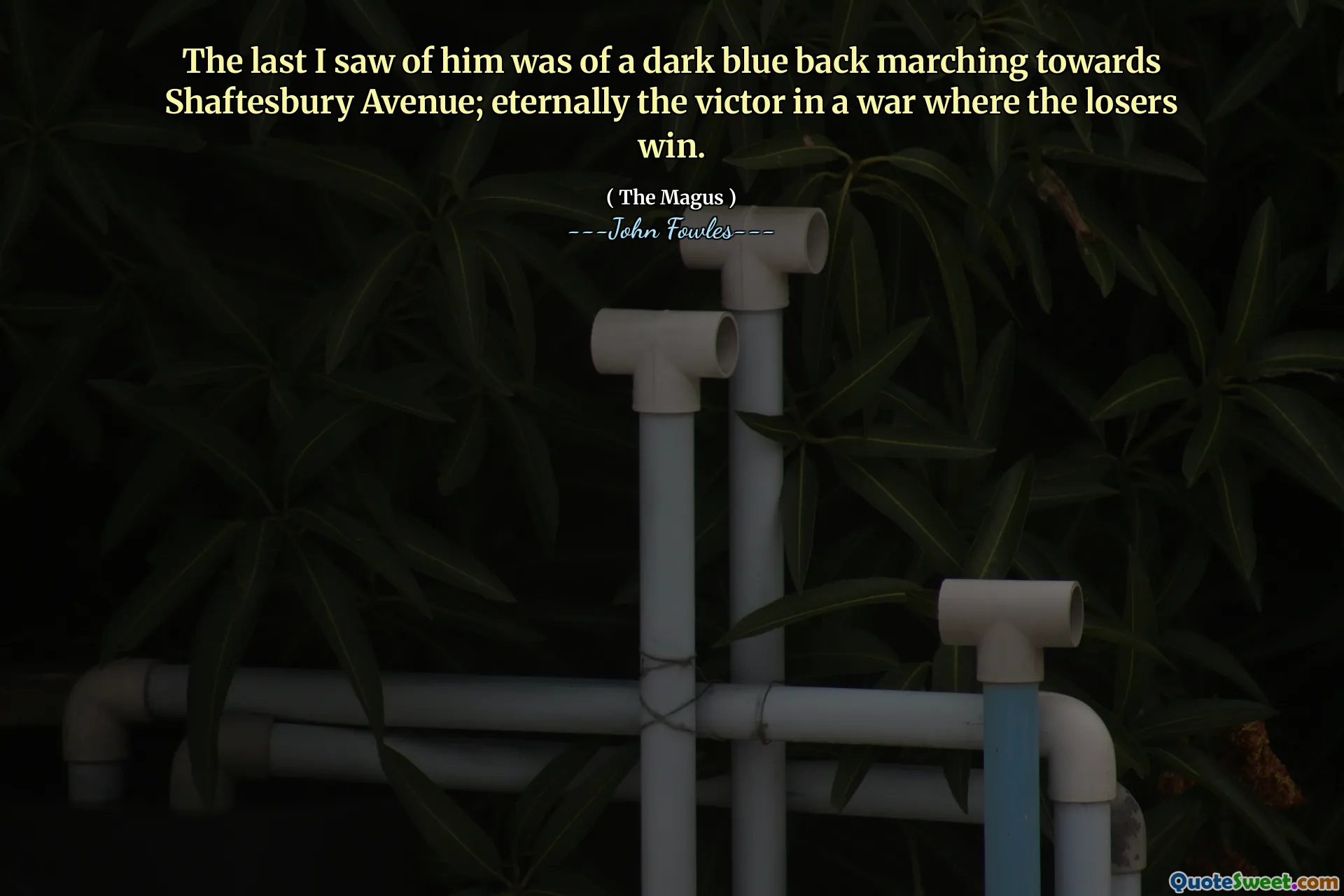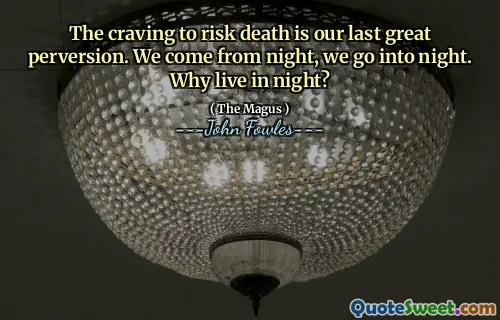
The last I saw of him was of a dark blue back marching towards Shaftesbury Avenue; eternally the victor in a war where the losers win.
This evocative quote conjures imagery of a solitary figure retreating towards a well-known London street, suggesting a sense of departure or an ongoing journey. The phrase 'dark blue back' perhaps highlights anonymity or defining traits—perhaps the person's occupation, mood, or identity—emphasized by the color blue, often associated with depth, tranquility, or melancholy. The notion that this individual is 'eternally the victor in a war where the losers win' introduces a paradoxical reflection on conflict and victory. It hints at the idea that battles—personal, psychological, or societal—do not always have clear-cut winners or losers, and sometimes, the true victory lies in resilience, endurance, or even resignation itself. The street, Shaftesbury Avenue, embodies an artful touch—an iconic location representing urban life and the constant flux of human stories. The act of marching toward it may symbolize a journey towards self-awareness or a confrontation with one's destiny, with victory being perhaps less about triumph and more about persistence amidst struggle. The fleeting nature of that final sight underscores the transient essence of encounters, signifying that people and moments are often fleeting but leave subtle imprints. Ultimately, the quote resonates deeply with themes of perseverance, the elusive nature of victory, and the quiet strength found in acceptance. It prompts reflection on how the battles we face shape our identities and how often, in winning or losing, we find ourselves evolving in unexpected ways, forever part of an ongoing narrative that blends triumph with surrender.







